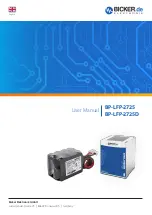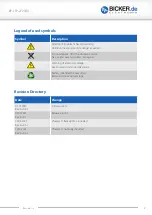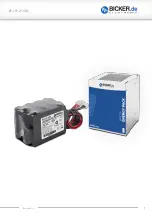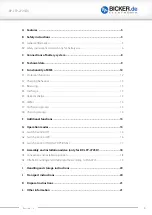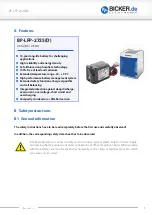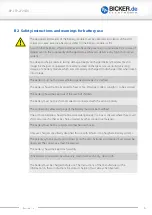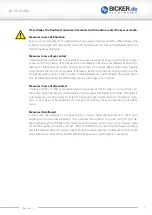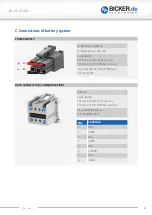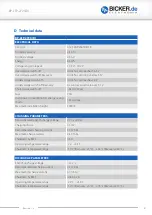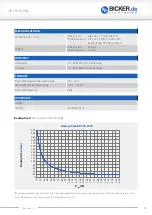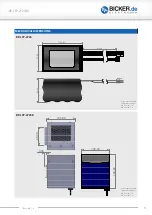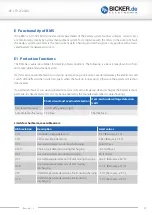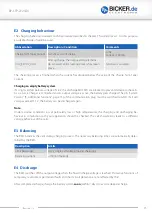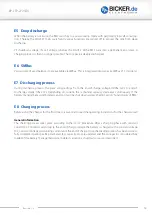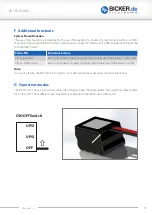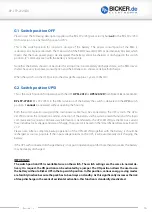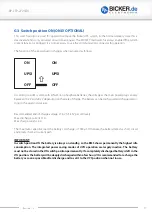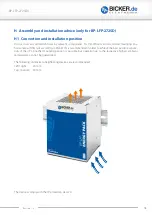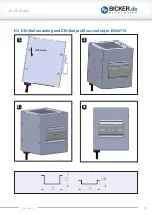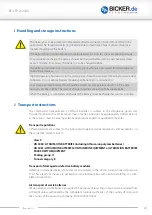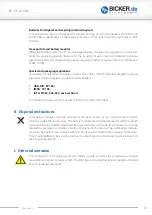
BP-LFP-2725(D)
Revision 1-2
6
The described limit values of the battery module must be observed. A violation of the limit
values can cause excessive heating, a defect in the battery module or fire.
As with other batteries, lithium batteries also have the potential to continue being a source of
danger even in the supposedly discharged state, as they can deliver a very high short-circuit
current.
Too deep discharge leads to lasting damage. Deeply discharged battery modules may no
longer be charged or operated. For example, deep discharge can occur during very long
storage of a battery module which was completely discharged (to discharge limit) when taken
into storage.
The battery must not be disassembled, opened, damaged or crushed.
The battery should not be exposed to heat or fire. Prolonged, direct sunlight is to be avoided.
The battery should be kept out of the reach of children.
The battery must not be short-circuited or connected with the wrong polarity.
The connection cables and plugs of the battery must not be modified.
One or more batteries should not be stored dangerously in a box or drawer where they could
short-circuit each other or be short-circuited by other conductive materials.
The battery must not be subjected to mechanical shocks.
Only use chargers specifically designed for use with lithium iron phosphate battery systems.
The polarity symbols plus (+) and minus (-) on the cells, batteries and devices must always be
observed. The correct use must be ensured.
The battery should be kept clean and dry.
If the battery connections become dirty, clean them with a dry, clean cloth.
The battery must be charged before use. The instructions of the manufacturer or the
information in these instructions for correct charging must always be observed.
B2 Safety instructions and warnings for battery use

